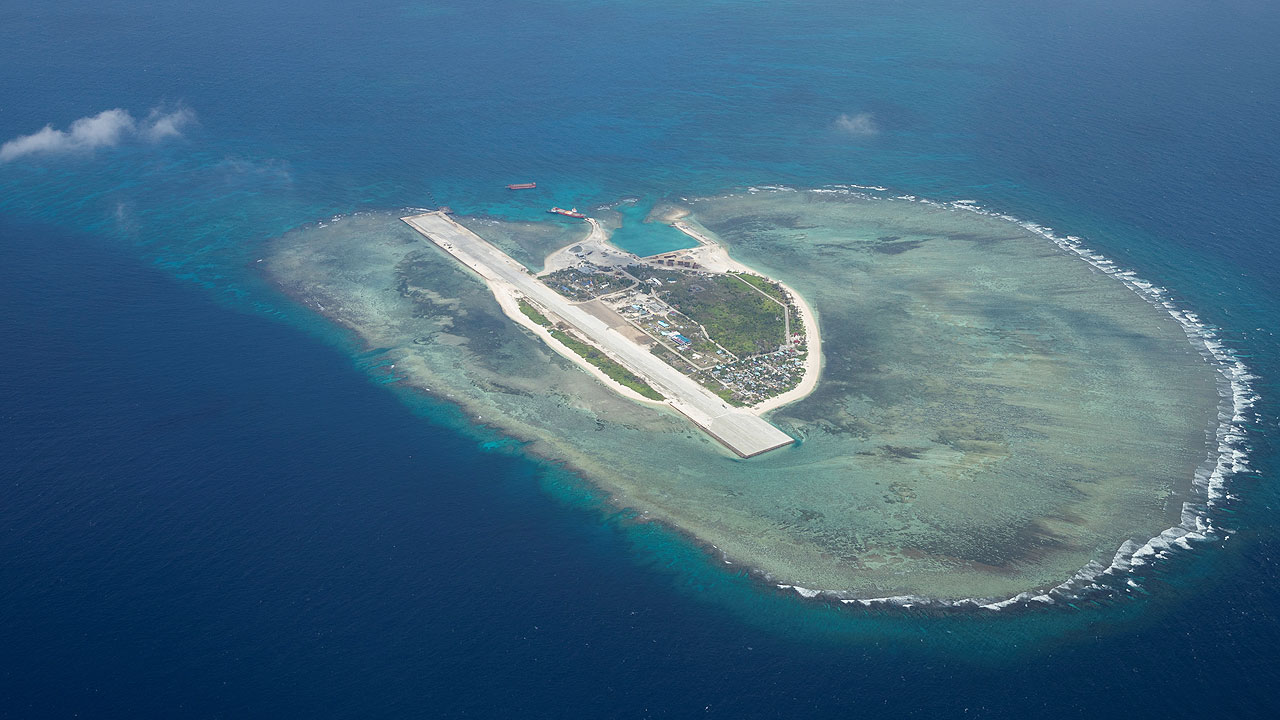Philippines ‘rejects and refutes’ China’s claims over Spratly Islands

THE Philippines on Thursday said that it “rejects and refutes” China’s recent remarks claiming it has “indisputable sovereignty” over Spratly Islands, the Department of Foreign Affairs (DFA) said.
“The fundamental fact is that Pag-asa Island and the Pag-asa Cays form part of the Kalayaan Island Group (Spratly Islands), which is an integral part of the Philippines over which it has longstanding sovereignty and jurisdiction,” DFA Spokesperson Teresita C. Daza said in a statement.
“The Philippines is clearly within its rights to conduct routine maritime operations and scientific research in and around these features and will continue to do so.”
The Chinese Embassy in Manila did not immediately reply to a Viber message seeking comment.
The Embassy on Monday accused the Philippines of intruding its territorial waters, claiming that the Southeast Asian nation conducted “27 unauthorized landings,” involving 167 personnel on uninhabited features in the South China Sea.
“Notably, these so-called scientific research missions included media crews, seemingly to stage and record the events, resembling film production rather than genuine research,” the embassy said. “The underlying intentions behind such activities are self-evident. It is clear which party initiated the provocation, and which is engaging in deception.”
The DFA asserted the Philippines’ actions in the area are a valid exercise of Philippine sovereignty and consistent with international law, citing the 1982 United Nations Convention on the Law of the Sea (UNCLOS), the 2016 South China Sea Arbitral Award, the 2002 Declaration on the Conduct of Parties in the South China Sea
“China has no right to object much less interfere with these lawful and routine activities,” Ms. Daza said, adding it should respect the Philippines’ sovereignty and jurisdiction.
Last week, Manila accused Beijing’s coast guard of endangering two Philippine civilian vessels conducting research near the in Pag-Asa Cays 1, 2 and 3 in the South China Sea.
The Chinese coast guard had reportedly fired its water cannons at BRP Datu Sanday before colliding the vessel, damaging its bow and chimney.
In April, Chinese state media reported that China’s coast guard had asserted sovereignty over the Sandy Cay by landing and displaying Beijing’s national flag on the feature.
Manila has since rejected their claims as the features form part of the country’s exclusive economic zone. It had likewise deployed its own troops shortly after reinforcing its claims.
Ties between Beijing and Manila have worsened in recent years due to repeated encounters between their coast guard ships in the South China Sea.
China claims more than 80% of the South China Sea based on a 1940s map, which a United Nations-backed arbitration court in The Hague voided in 2016 for being illegal. Other countries like Brunei, Indonesia, Malaysia, and Vietnam also have claims in the disputed waterway.
PHL-JAPAN SECURITY TIES
Meanwhile, the Philippines and Japan are in talks to deepen their security and economic ties after a bilateral meeting between the Foreign Affairs Secretary Enrique A. Manalo and Japanese Foreign Minister Takeshi Iwaya in Tokyo.
“Regarding security, the two foreign ministers held in-depth discussions on further strengthening the foundation for security and defense cooperation, based on last month’s Summit Meeting,” the Japanese Embassy said on Thursday.
Mr. Iwaya had also pushed for further cooperation between the two nations through the official security assistance to further build the Philippines’ defense capabilities.
Manila was one of the first recipients of Tokyo’s official security assistance, a program aimed at helping boost deterrence capabilities of partner countries.
The two envoys also discussed the possibility of a potential information security agreement between Manila and Tokyo, that would enable the sharing of classified information and strengthen security cooperation.
They also agreed to hold maritime consultations and vice-ministerial strategic dialogue within the year to “share strategic perceptions and further advance cooperation in the field of security, including the maritime domain.”
Security ties between the two US allies have strengthened in the past two years as Japan and the Philippines share common concerns over China’s increasingly assertive actions in the region.
Mr. Iwaya added that Japan would also like to further promote infrastructure development in the Philippines as equal partners through public-private partnerships.
The two envoys also recognized the need for a stable investment environment for the development of mineral sources projects in the Philippines.
Mr. Iwaya and Mr. Manalo said that they will proceed with preparations on or the next Japan-Philippines High Level Joint Committee on Infrastructure Development and Economic Cooperation in Japan this year.
SHANGRI-LA DIALOGUE
Separately, the Philippines’ defense chief is set to attend a high-level security summit in Singapore, where he will be joined by counterparts from other nations and push for talks on advancing Manila’ strategic interests amid tensions in the South China Sea.
Defense Secretary Gilberto C. Teodoro, Jr. will attend the Shangri-La Dialogue alongside other top military officers in Singapore from May 30 to June 1 in hopes of strengthening defense ties with allies, the Department of National Defense (DND) said.
“The DND and the Armed Forces of the Philippines (AFP) is scheduled to hold bilateral and multilateral meetings with counterparts from various countries,” it said in a statement.
The Shangri-La Dialogue is Asia’s leading security summit, convening top defense officials from across the region and beyond. It features debates led by officials and is an avenue for bilateral talks among delegates.
President Ferdinand R. Marcos, Jr. defended Manila’s territorial claims in the contested South China Sea in last year’s forum.
“Secretary Teodoro’s participation underscored the Philippines’ commitment to a rules-based international order and sustained peace and stability in the Indo-Pacific region through open dialogue and strategic partnerships,” the DND said.
Meanwhile, the Philippine military has activated a new special operations command on Wednesday, a move aimed at making its forces more responsive amid persistent security challenges faced by the Southeast Asian nation.
The AFP has transferred its special operations command to the Philippine Army and launched a new joint special operations unit in a restructuring aimed at enhancing force agility.
“This transformation is operationally driven, doctrinally sound and aligned with our vision of a credible and unified armed forces,” AFP Chief-of-Staff General Romeo S. Brawner, Jr. said in a separate statement. — Adrian H. Halili and Kenneth Christiane L. Basilio



